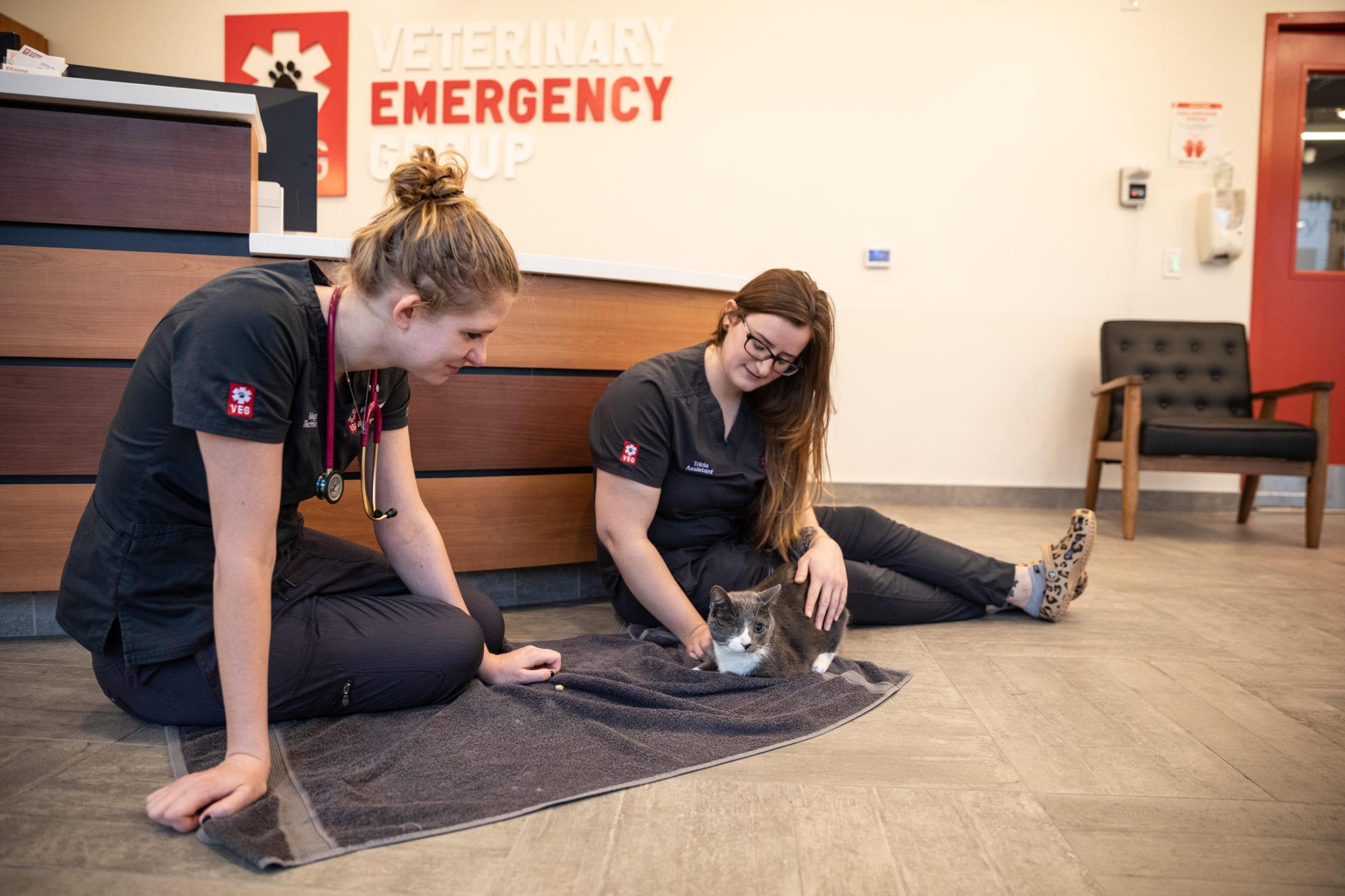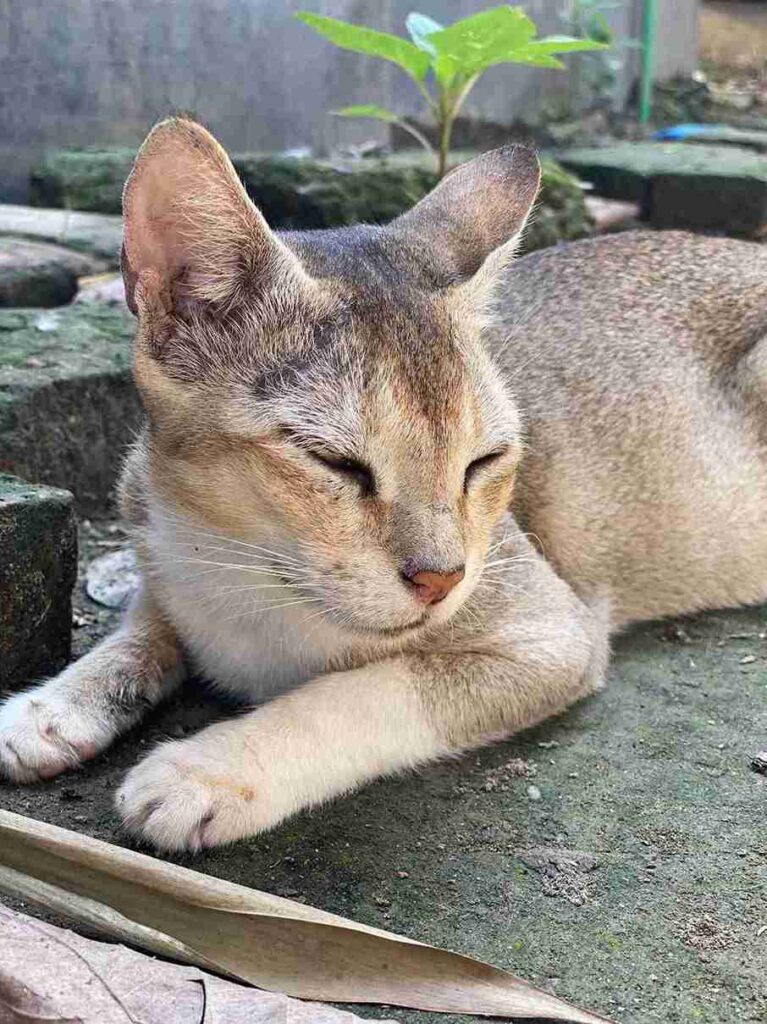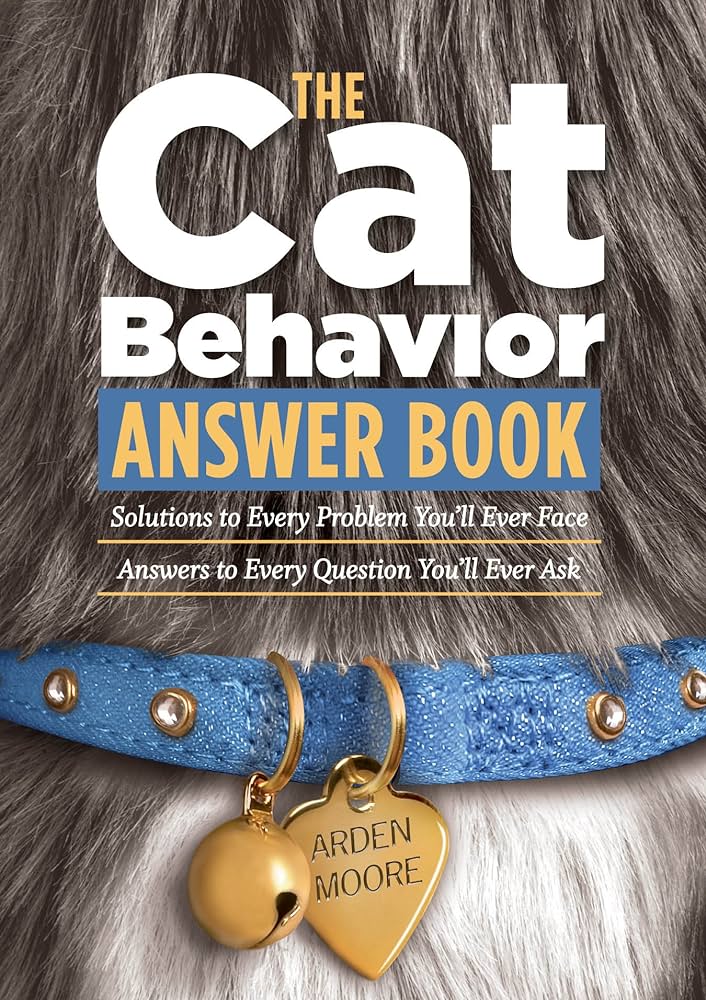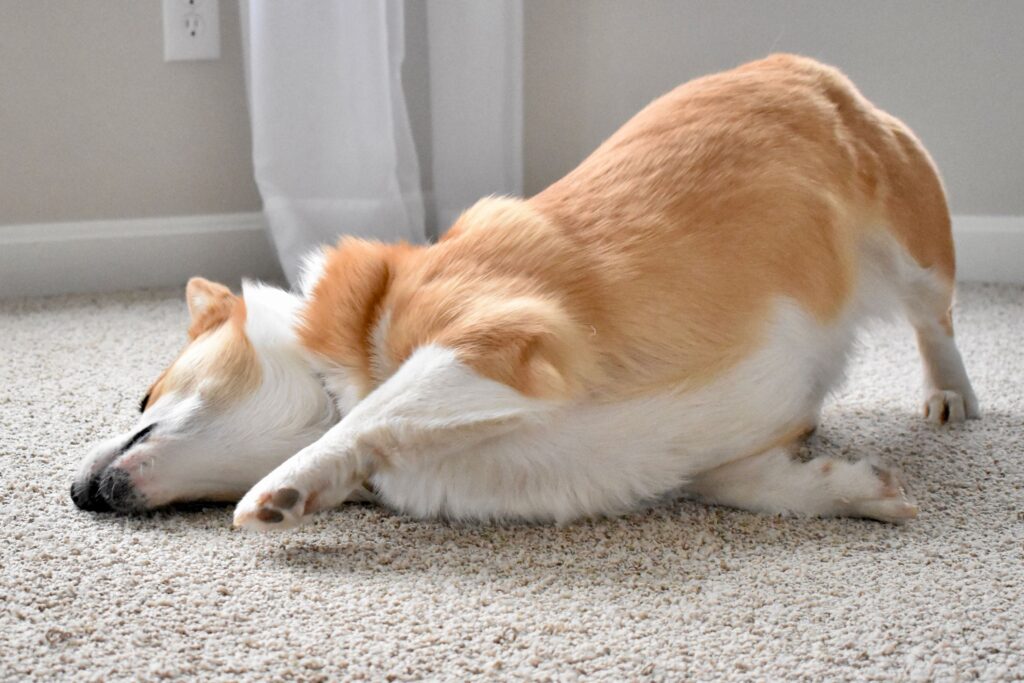If your cat is gagging at food, it may be an indication of anxiety. This can be caused by various factors, such as changes in their environment or underlying medical conditions.
We will explore the possible reasons for your cat’s anxiety and provide tips on how to help alleviate their symptoms. Understanding the triggers behind your cat’s anxiety is essential in order to provide them with the necessary support and create a calming environment.
By addressing their anxiety, we can ensure that they are able to enjoy their meals and maintain their overall well-being. So, let’s delve into the world of cat anxiety and discover ways to help your furry friend overcome their gagging episodes.

Contents
Understanding The Anxious Behavior
Understanding the anxious behavior of your cat when it comes to food gagging is crucial. Common causes of food gagging in cats include hairballs, dental issues, foreign objects, and throat irritation. However, anxiety can also be a contributing factor in food gagging.
Anxiety can cause your cat to feel stressed and restless, leading to difficulty swallowing food properly. This can result in the cat gagging or regurgitating their food. It is important to identify the root cause of the anxiety, which can include environmental changes, separation anxiety, or previous traumatic experiences.
To help alleviate anxiety-related food gagging, create a calm and secure environment for your cat. Provide them with a designated eating area and ensure they have regular mealtimes. Additionally, consider using natural remedies or supplements designed to reduce anxiety in cats.
By addressing the underlying anxiety, you can help your cat overcome their food gagging issue and ensure they enjoy their meals without any discomfort.
Identifying Stress Triggers
| Signs of stress in cats | Potential triggers for anxiety in cats | How stress impacts a cat’s eating behavior |
|---|---|---|
| Pacing | Changes in environment | Loss of appetite |
| Excessive grooming | Loud noises | Vomiting or gagging |
| Increased aggression | Introduction of new pets | Weight loss |
Stress can have a significant impact on a cat’s well-being, including their eating behavior. It is important to be able to identify the signs of stress in cats, such as pacing, excessive grooming, and increased aggression. These signs can help us understand if something is causing anxiety in our feline friends.
Potential triggers for anxiety in cats include changes in their environment, such as moving to a new home or rearranging furniture. Loud noises, such as fireworks or construction sounds, can also be stress-inducing for cats. Additionally, the introduction of new pets or the loss of a companion can contribute to their anxiety levels.
When cats are stressed, it can impact their eating behavior. Some may experience a loss of appetite, leading to weight loss. Others may vomit or gag while eating, indicating digestive distress. Being aware of these changes can help us address the underlying causes of stress and ensure our cats’ overall well-being.
Addressing Anxiety In Cats
- Creating a stress-free feeding environment: Cats with anxiety may experience gagging or difficulty eating. Ensure their feeding area is quiet, away from distractions and other pets. Use elevated platforms or secluded spaces to provide a safe and comforting environment while they eat. Consider using puzzle feeders or slow feeders to engage them in cognitive stimulation and alleviate stress.
- Professional help for cats with severe anxiety: If the anxiety persists or worsens, consult a veterinarian or animal behaviorist. They can assess the underlying cause of anxiety and recommend appropriate interventions. This may involve behavior modification techniques, medication, or a combination of both. Seek expert guidance to enhance your cat’s well-being and minimize symptoms of anxiety.

Credit: veterinaryemergencygroup.com
Frequently Asked Questions Of My Cat Is Gagging At Food: Are You Anxious For A Reason?
Can Stress Cause Gagging In Cats?
Yes, stress can cause gagging in cats. Stress can result in excessive salivation, which can lead to gagging or retching. It’s important to minimize stressors and provide a calm and comfortable environment for your cat to prevent this.
When Should I Be Worried About My Cat Gagging?
If your cat is frequently gagging, it could be a sign of a serious health issue. You should be concerned if the gagging is accompanied by other symptoms like difficulty breathing, excessive drooling, or vomiting. It’s important to consult a veterinarian for an accurate diagnosis and proper treatment.
Why Does My Cat Keep Acting Like He’s Going To Throw Up?
Cats act like they’re going to throw up due to hairballs, indigestion, or stomach issues. Regular grooming and a balanced diet can help prevent this behavior. If it persists, consult a veterinarian for a proper diagnosis and treatment.
How Do I Stop My Cat From Gagging?
To stop your cat from gagging, try the following: 1. Check for any foreign objects stuck in their throat or mouth. 2. Ensure their food is fresh and properly chewed. 3. Slow down feeding with smaller portions to prevent overeating.
4. Keep them hydrated with clean water. 5. If gagging persists or worsens, consult a veterinarian.
Conclusion
To conclude, if your cat is gagging at food, anxiety could be a possible reason. Understanding the connection between anxiety and feeding problems in cats is crucial for their well-being. By providing a calm environment, building positive associations with mealtime, and seeking professional help if needed, you can help alleviate your cat’s anxiety and ensure a happier, healthier feline friend.
Remember, observation, patience, and care are key when addressing your cat’s feeding issues.

Katie Lindsey is a passionate cat lover and founder of Cats Solution, a comprehensive resource for all things feline. With a lifelong love for cats and extensive knowledge in their care and behavior, she provides expert advice and solutions to cat owners. Through her website, Katie fosters a supportive community where cat enthusiasts can find guidance and heartwarming stories. A dedicated advocate for animal welfare, Katie also promotes responsible pet ownership and adoption. Join her on this purr-fect journey celebrating the joy of feline companionship.



